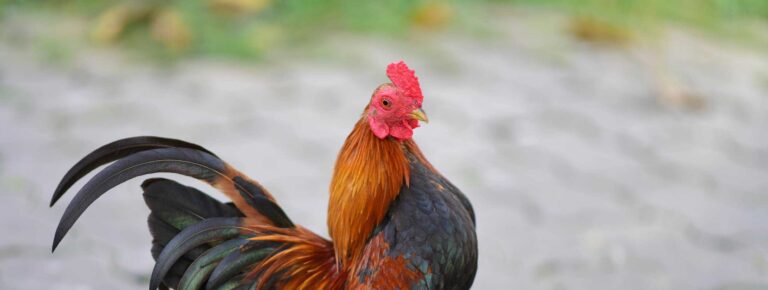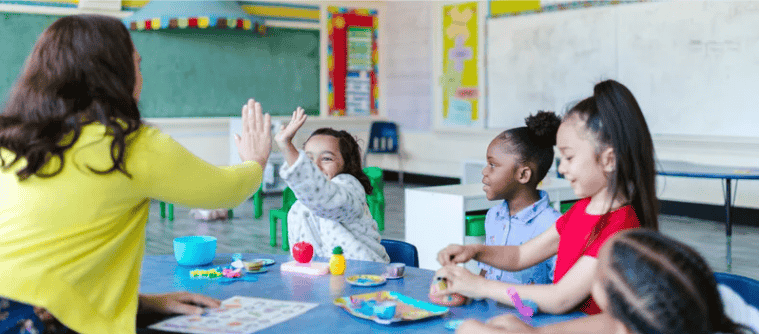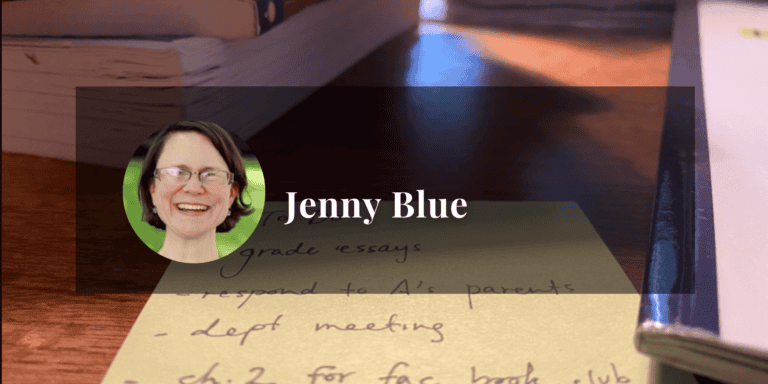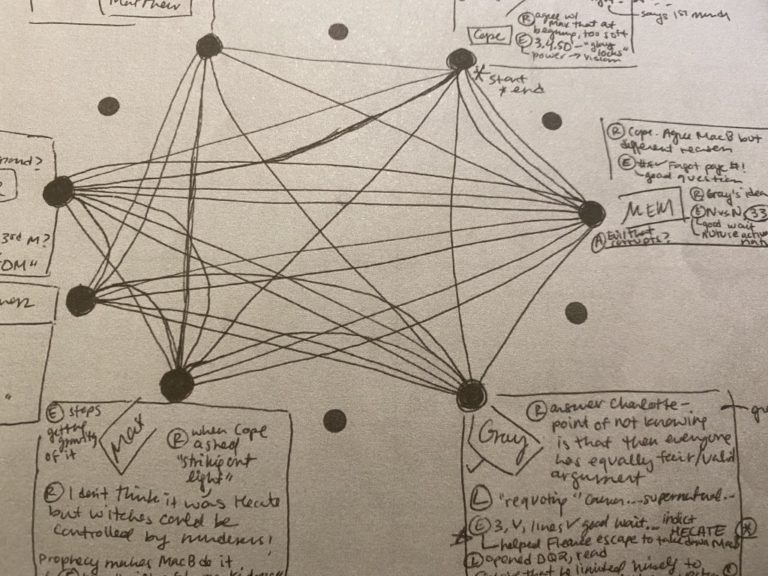Journeying on Wisdom Road: A Conversation with Grant Lichtman
Grant Lichtman is a renowned thought leader on the transformation of K-12 education who works with educators to develop a comfort and capacity for change in a rapidly changing world. Grant spent two years on a cross-country journey exploring deep wells of cultural wisdom that our tech-centered culture has eroded. What follows is a conversation between Grant and R.E.A.L.® founder Liza Garonzik. This conversation has been lightly edited for clarity.
Liza: Thank you for being here, Grant. We’re so excited to have you. You’ve held so many roles in schools and in the education landscape. You’ve been a teacher, administrator, consultant, author of four books…and we here are at R.E.A.L.® are huge fans of your new taxonomy for learning, which updates Bloom’s Taxonomy and uses civility as the base upon which belonging and deep learning rest. Can you tell us more about what you see as the relationship between civility and education?
Grant: I didn’t really recognize that until I went on this journey over the last couple years. I, like many others, had felt that perhaps we’d found a new foundational level upon which education needed to rest – the need to establish the difference between truth and falsity and fact and opinion – and that didn’t really exist prior to probably a decade or so ago.
Up until then, if our teacher told us something was true, we generally believed it was true, just as we generally believed what our other leaders and mentors and role models were telling us.
Suddenly, we’re in a very different situation. We can’t really move forward to what we’ve always considered the foundations of learning – history and art and literature and science and all those things – if we don’t agree on what’s true or not.
When I started this journey, I very quickly realized that there’s another layer here. We can’t even begin to have those discussions about what is true and what’s false and what’s opinion unless and until we are able to engage civilly with each other. That ability has deteriorated dramatically, as we all know, in the last several years in America and perhaps around the world.
We can’t even begin to have discussion about what is true and what’s false and what’s opinion unless and until we are able to engage civilly with each other.
Grant Lichtman
I believe that if we don’t establish civil discourse as our highest educational priority, then I fear that the rest is all built on a foundation of wobbly sand. That’s my message going forward to educators. It’s not going to be a comfortable message, because it asks people to establish or reestablish civil discourse as a priority.
Liza: The way you just described civility made me think about how much humility is also a prerequisite for civility. And the ability of listening to grow, and listening to understand, not just listening to talk, which is, I think, how we’ve been programmed to listen in many ways.
Grant: I think you’re right, and I think that’s what I learned on this journey. As I’ve told you in the past, I was never a very good listener during my life. I’m a big, tall guy with a loud voice, and I used it. Listening without an agenda and listening not to then follow up with my argument or to debate was a skill that I never really learned and yet I found incredibly rewarding. It underlies the foundation of what I learned and what I think we need to focus on in education.
Liza: It reminds me of the adage that great learning can happen anywhere, anytime, from anyone, as long as you’re open to it.
So tell us about this journey you’ve been on in the last couple of years. I know you’ve spent time on the road, interviewing Americans from diverse walks of life, in search of what you’ve called – and I love this phrasing – “deep wells of cultural wisdom across our country, traditions and lessons that have been swept away by our tech-driven, plugged-in race to consumption, popularity, and perceptions of success.”
Can you tell me what motivated you to begin this “wisdom road” journey?
Grant: In 2018 I was keynoting a statewide Educators Conference in South Dakota, and I attended a workshop by a woman named Tamera Miyasato, a Lakota educator who has written some beautiful and marvelous curriculum, the core of which is what I call Lakota wisdom traditions. These traditions include questions like, How should we raise our kids? How does a community best operate? What’s the role of leadership? What’s our relationship with the natural world? All sorts of really deep cultural wisdom that I certainly never learned about or knew about.
As I was listening to her, all I could think was, man, I’ve met 10,000 educators in the last 15 years, and I think every one of them would say, “Wow, this is really good stuff. How can we use this?” And the curriculum is all free. No one was really using this resource, and that just made me angry.
I started thinking, this can’t possibly be the only subculture in America that has these deep “wisdom traditions,” or insights, cultural values, and ideas that most of us don’t know about, and frankly, we’re at a risk of losing because we’re not doing a good job of passing on to the next generation.
That’s how my journey started, and it grew from something I was interested in and wanted to do to something I had to do. So, I bought a small RV, and over a period of about 18 months, I spent a total of about 30 weeks on the road alone. I went through parts of 33 states, 20,000 miles, and conducted well over 100 interviews with people I’d never met or known of before.
Liza: How did you decide whom you would talk to?
Grant: A lot of coincidence, serendipity, and outreach. I wasn’t terribly selective, and that was part of my motivation and part of my thesis. I reached out to friends and colleagues all over the country.
It turns out, of course, that schools are great places for that kind of outreach, because a school is a community. I gave people a broad outline. I was looking generally for older people, because their span of personal history is much longer with multi-generational roots in the target communities, the target cultures that I’d laid out through my own knowledge of our American history. I wanted to talk to people who were respected in the community. I ended up interviewing well over 100 people, and almost every single one had something valuable to share.
I probably could have found all the answers I was looking for by going to a bookstore or downloading the podcast of all the famous influencers and authors and talking heads that we hear from all the time. But I think it’s really important to realize there’s as much value in a pile of sand as there is in a few gemstones. That was one of the big takeaways from the trip and what was so inspirational to me.
There’s as much value in a pile of sand as there is in a few gemstones.
Grant Lichtman
Liza: When you think about those 100 conversations, take us to some of the most inspiring moments of the journey. What was it in those conversations – in terms of the mechanics of the conversation – that made you feel most authentically connected to the person you were speaking with?
This trip was like a continuous IV of inspiration. Having said that, there were some pretty remarkable moments. I’m thinking about a woman who had been homeless, who was a drug addict, and who was working with a homeless outreach group in San Antonio, Texas. It wasn’t 10 minutes after I met her that she was telling me about her history of abuse and the multi-generational trauma that her family had gone through. It’s pretty inspiring to me that someone would have the openness and the generosity to share that sort of thing to a complete stranger.
A similar moment came from a member of a First Nations community in Canada. A gentleman told me of being torn from the arms of his mother when he was four years old and sent to a boarding school where the first thing he was told was, “Your new name is Number 75”. He found me later in the day and gave me a box that he’d made with his burnt imprint of a wolf on it, and inside was an eagle feather. He told me I would need it for the rest of my journey.
Liza: That’s so inspirational to get that kind of connection and immediate support from people you don’t know. And when people say yes to the conversation, they’re trusting you to be a steward of their story. That, automatically, is pretty inspirational in today’s world, where I think there’s not a lot of generosity and goodwill as the default.
Grant: I’m not sure about that. I think today there is a lot of generosity – we just don’t hear about it. And everybody I talked to said this makes us angry that we don’t hear about it, because the norm is actually generosity and hospitality, not what we hear on the news or on our social media feeds all the time.
The second question you had was about deep connections. I think I felt the deepest connections when, after talking for an hour, somebody said, “won’t you stay for lunch?” I think that sort of connection and the extension of our conversations, moving from sort of the standard conversation I was having to deeper conversations was when I really started to feel connected with people. That implied a level of trust and comfort, around which those civil connections flourish.
Liza: Absolutely. All of this sounds inspirational, but there must have been moments of difficulty too. What were some of the more challenging discussions, and how did you get through them?
Grant: None of the challenges revolved around discussions, not a single one. I had challenges. I woke up in the middle of the night and swore it was raining outside, but it wasn’t. It turns out the rain I was hearing was my shower, which had turned on because something had fallen off a shelf and hit a lever, and my bathroom in the RV was flooding out.
I had logistical challenges, but never once did I have challenges with a single interview. It just didn’t happen, because I was going in with the mindset that I was there to listen to whatever they had to say, and whatever happened, happened.
I think that’s another important message. Reprising my experience is not difficult – other than spending 30 weeks on the road.
One of the things I will be working on with schools is how to reprise the core elements of this Wisdom Road journey without getting in a vehicle and traveling all over the country. I think it’s extremely easy to do, and some schools do it. I hope to help schools and other organizations realize how they can do that.
Reprising the core elements of the Wisdom Road journey…is extremely easy to do, and some schools do it. I hope to help schools and other organizations realize how they can do that.
Grant Lichtman
Liza: I love the idea. If I had a classroom right now, that’s exactly what I would want students to do.
Is there anything else you want schools in particular to understand about your journey?
Grant: I want them to understand that there is a scaffold for this. It’s a fairly simple scaffold that revolves around learning how we can seek out people who are truly the “other” who are not far away. We don’t have to travel far to find them. How do we engage them?
I think this really lies at the core of that generosity I found of engaging people without an agenda. Connecting and being human with each other is our agenda.
Connecting and being human with each other is our agenda.
Grant Lichtman
How do we truly embed this into education? That’s what I’m going to focus on. I don’t have it perfected yet, but I will a year from now.
Liza: Well, we can’t wait. It’s so exciting – both the model you’ve set, and also the intentionality with which you’re attempting to empower educators to recreate elements of this work that will be developmentally resonant for students. It’s exciting to see.






